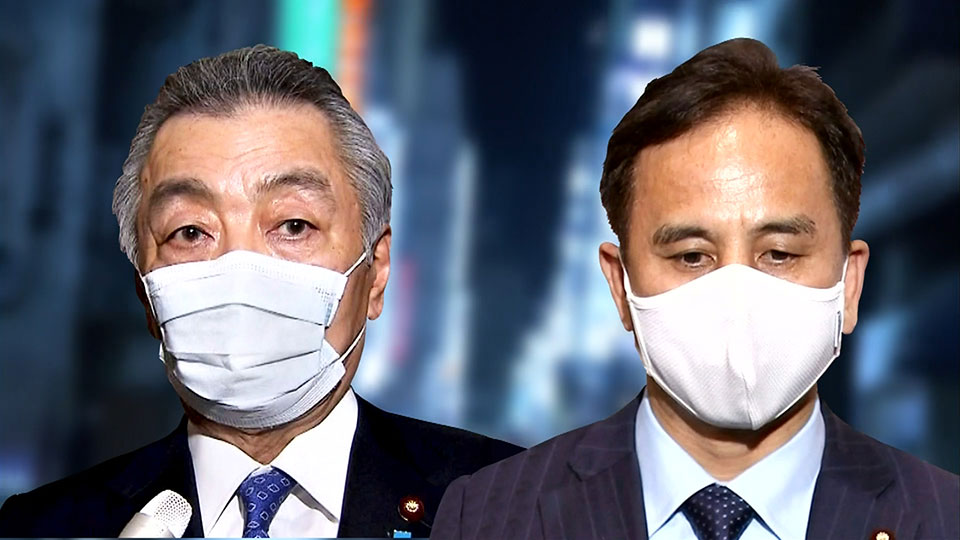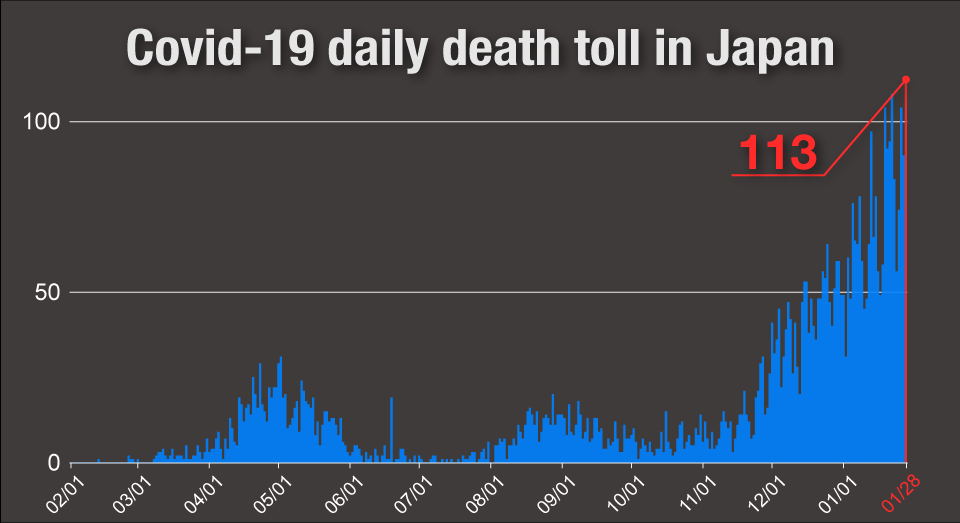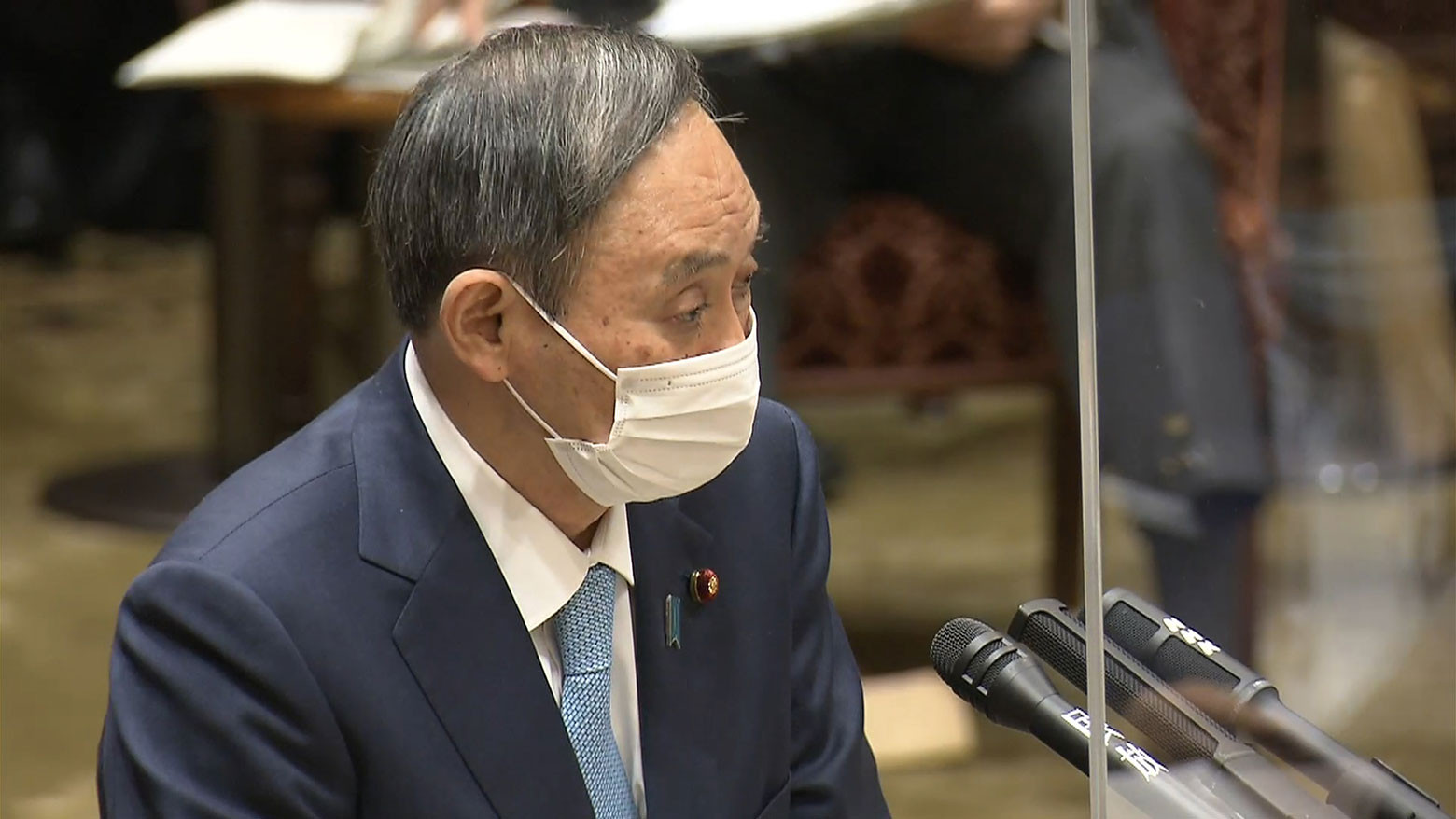Members of the ruling Liberal Democratic Party and the largest opposition group, the Constitutional Democratic Party, have been debating revisions to the special anti-coronavirus law and the infectious disease control law.
The drafts allow prefectural governors to impose fines on businesses that don't follow requests to change operating hours and infected people who refuse to stay at designated facilities.
LDP lawmakers had argued for prison terms for anyone who doesn’t follow quarantine rules, but eventually backed down after the opposition said this would be an undue limit on private rights.
Legislators are currently ironing out revisions and are expected to enact the bills next week.
Lawmakers flout stay-home request
One factor affecting the outcome of the talks was the revelation that members of the ruling coalition had ignored the government’s stay-at-home request.
Matsumoto Jun, the acting Diet affairs chief of the main ruling Liberal Democratic Party, and Toyama Kiyohiko, the deputy secretary general of junior coalition partner Komeito, were seen at clubs in Tokyo's Ginza district late into the night in mid-January, at a time when the public is being urged to avoid all non-essential outings after 8 PM.
Prime Minister Suga Yoshihide was forced to apologize, saying “All Diet members should act in way that gains the understanding of the public."
Matsumoto and Toyama have since resigned.

Japan may extend state of emergency
A state of emergency is currently in effect for Tokyo and ten other prefectures.
Japan reported 113 coronavirus deaths on Thursday, the most of any day so far. And while daily new infections have been falling, the number of serious cases is not, with hospitals still at full capacity. Meanwhile, experts say there has been a sharp increase in infections among the elderly. In Tokyo, people over the age of 65 made up 21.8% of total new cases for the week through Monday. This is up from 12.6% at the beginning of the month.
The state of emergency is scheduled to end on February 7th, but the head of the government's coronavirus expert panel says the situation must be reassessed before any decisions are made.
“I think the effects of the state of emergency will probably be known this weekend or early next week,” said Omi Shigeru on Wednesday. “That will be a key factor in how and when we lift it.”

The main opposition party has also questioned the feasibility of holding the Olympics and Paralympics under such conditions, but Hashimoto Seiko, the minister in charge of the Games, says the government is planning to press ahead.
"The IOC Executive Board has set out the competition schedules,” she says. “It has already decided to hold the Olympics. I understand that it must be safe and secure. The central government will work closely with the Tokyo Metropolitan Government, the IOC and the organizing committee to prepare.”

